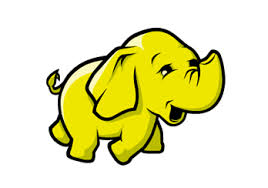Or, how post-conference blues hit.
Seeding
You don’t actually get to witness these kinds of things to often. Yes, there was the birth of POUG conference, the passionate work of Kamil Stawiarski and the people he gathered around him. He did an awesome job and pulled it off.
Why then is this so special? Well, first of all because it is my native conference. People that have contributed for many years, working closely together with new members to create something new. I think it is kinda special.
Richard Olrichs, Ise Douwes, Luc Bors and Bart van de Laar formed the team that pulled it of! Kudos to them.
Work started already end of 2016… on the notion that this conference was being organized, there was a small Twitter bombardment to recruit as many of the interesting international speakers to come and join us. This helped create a fabulous agenda, covering 81 (!!) sessions and 3 keynotes over 2 days in the spectacular setting of “De Rijtuigenloods” in Amersfoort.
Importance for NL
We have (finally) done it! The Netherlands have experienced their very first Full Stack Oracle Conference ever! I have said this many times before, and I will say this probably many times again, this is so very important for the spread of knowledge, the exchange of experiences and cross-pollination between countries!
We have never done this before… We have APEX World, which is, of course, super important! And we have SIGs, which are very important for people working within a specialization. All good, all very important! But our business is way to specialized already. If you never take the time to look over your boundaries to what your colleague is doing (for which you don’t have time on a day-to-day basis) you’ll get isolated and miss out on possible great idea’s, changes and inspiration. For this alone, events like these are so important. For a country / region (as we span Benelux) that is so active in IT, it is a nuisance to have to go to either the UK or to Germany to experience a conference like this.
It is _that_ important…
One personal thing… nl.OUG (this is the brand new name for OGh, which also symbolizes a new start to me) focus on talks on (end-) user experience, in effect, partners with end-users coming to share project briefs… Good in itself, but not what I would applaud as main focus. These conferences – to me – are about learning and the best learning comes from professionals sharing either best practices or telling about technical implementations of technique. These stories are obviously always very welcome, but are no main focus…
My personal experiences
— International scene
As an active member of the Oracle community, I tend to know a number of people, spread out over this globe. One of the joys of a general conference is the fact that many of these people also participate. This leads to many happy encounters. With Oren Nakdimon from Israel, to Sandra Flores from Mexico, with Tim Hall, aka. Oracle Base, Maria Colgan & Brendan Tierney and therefor with Chris Saxon, more than 2rds of the Ask TOM-team!! And even many more famous speakers from home and abroad. It was a very special feeling to meet all these beautiful people on my home turf!
— Followed sessions
I didn’t get to follow many sessions, partly because of the many people I met and wanted to catch up with and partly because of, well, other responsibilities…
And perhaps a bit because of the fact that the ratio between serial sessions and parallel sessions was a bit off.
I did get to see:
The keynote by Maria Colgan highlighting the many things you can do with an Oracle database
Investigating the performance of a statement via the SQL Monitor report by Toon Koppelaars, which is always insightful!
Moving Oracle data in real-time – The 3 fundamental principles of Oracle replication by Jakub Sjeba from Dbvisit, which proved to be an excellent basis for my own session, later that day
Blockchain on the Oracle Cloud, the next big thing by Robert van Mölken, who helped me understand the technical side of the Blockchain technology.
It’s a wrap by Lucas Jellema, who did a great job at really zooming out and looking at the bigger picture.
— My sessions
I had the lucky opportunity to present even 2 sessions in Amersfoort.
Migrating your Oracle database with almost zero downtime
and
Comparing PostgreSQL to Oracle
Both sessions were well attended and interactive. I enjoyed it very much and, judging from the reactions and interactions, I guess the attendees too. Thank you for attending!!
Obviously I am happy to see the uptake of PostgreSQL and EDB Postgres in the Benelux. As said with “horses for courses”, Oracle has it’s playing-field, but so does PostgreSQL, and probably bigger than it is today 🙂
And now, the future…
This was 2017, this was the kick-off, the very first one.
With the buzz and with the post-conference blues…
It now is time to look to 2018, start preparing. Gathering lessons learned, inventorise feedback and make plans.
Whatever the outcome, there can only be 1 plan! “nl.OUGTech18″ or “Tech Experience 2018” we need to make sure the messages reaches further and wider.
With over 250 attendees for a first event, we aim for over 500 for the next event. There are more than enough potential participants in our region to pull this of.
The basic structure is there, the first succes is there, let’s do this!!
See you all next year!!
(or hopefully sooner)





